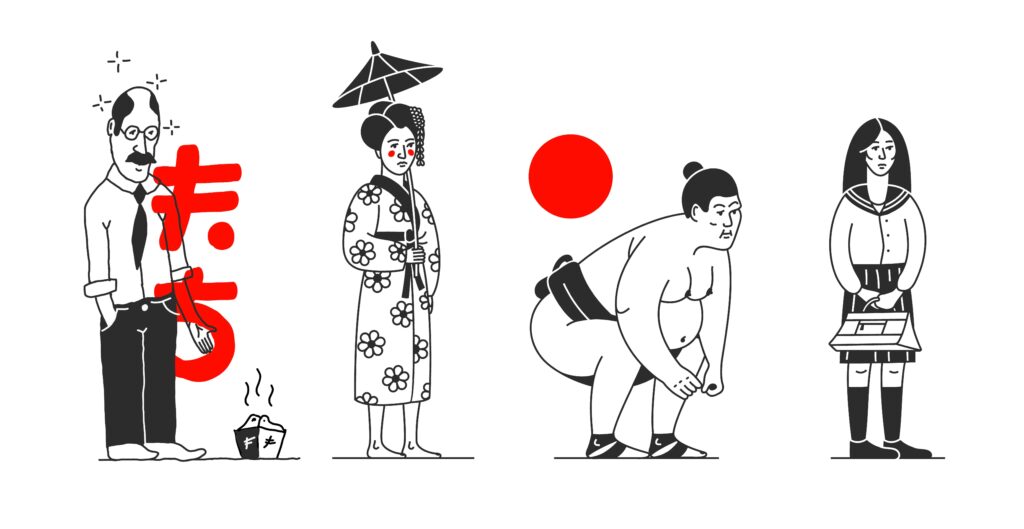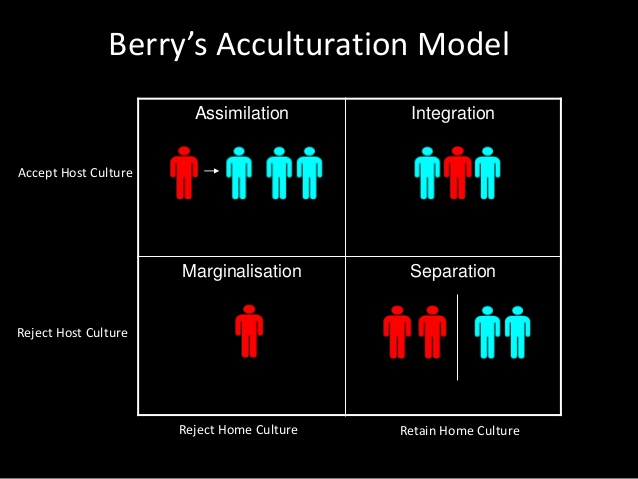Transformation of acculturation during the second half 20th century and the beginning of 21st century
Acculturation means, assimilation to a new and different culture which happens mostly with the dominant culture. It may also impact social and psychological well-being.

Since the beginning of the 90s the approach to acculturation studies, has been revised, which happened due to untied Germany. “…Two generations of Germans, brought up in different socio- cultural environments, and having very little opportunity to communicate with each other, after the unification of Germany had to face problems of acculturation” (Ushanova 2001: 4- 5). Russian speaking scientists have been facing different problems studying acculturation themes, due to the insufficient scientific/theoretical development of the acculturation concept.

Along similar models to Berry, Natalia Vladislavovna Yankina examines the matter of tolerance in intercultural communications. Yankina describes acculturation as
“the process and result of the mutual influence of different cultures in which all or a part of the representatives of one culture (the recipient) adopt the norms, values and traditions of the other (donor)”.
Acculturation is a crucial factor in order to retain cultural identity while being (or becoming) engaged in another culture.
Researchers are studying various acculturation matters such as:
- Linguistic acculturation: During this process, the person masters a new language so that the new language changes his/her culture. The person uses the new language instead of his/her mother tongue communicating, living and fulfill the basic needs (Ushanova 2003, Perez 2011).
- Legal acculturation: interaction between legal cultures of different societies (Rulan 1988, Sokolsky 2014).
- Religious acculturation: interaction between religious cultures (Sobolev 2003, Awad 2010).
- Ethnic acculturation: interaction between ethnicities (Avdeeva & Bolotin 2016, Mashau 2012).
- Online acculturation: It is an intercultural interaction between people in the online platform, which has even created the new online culture. Online Platforms are vast area so that different people with different backgrounds can communicate with one another (Kosik2015).
- Psychological acculturation: interaction of an individual with another sociocultural environment (Graves 1967, Bochner 1982).
- Political acculturation: The changes of the political ideations and beliefs of a group while interacting or participating with different groups (Berry & Annis 1988, Iovan 2015).
“As a theoretical scientific category, acculturation research goes beyond academic discourse and is increasingly taken into account in political debates. Acculturation is becoming a reality that needs consideration in many political decisions. The present global social space is a world of worlds, where each component has its own cultural, ethnic, religious, and political peculiarities. Analysis of any specific form or model of acculturation involves further, specialized research”.
Ludmila Sokolskaya, Arturas Valentonis